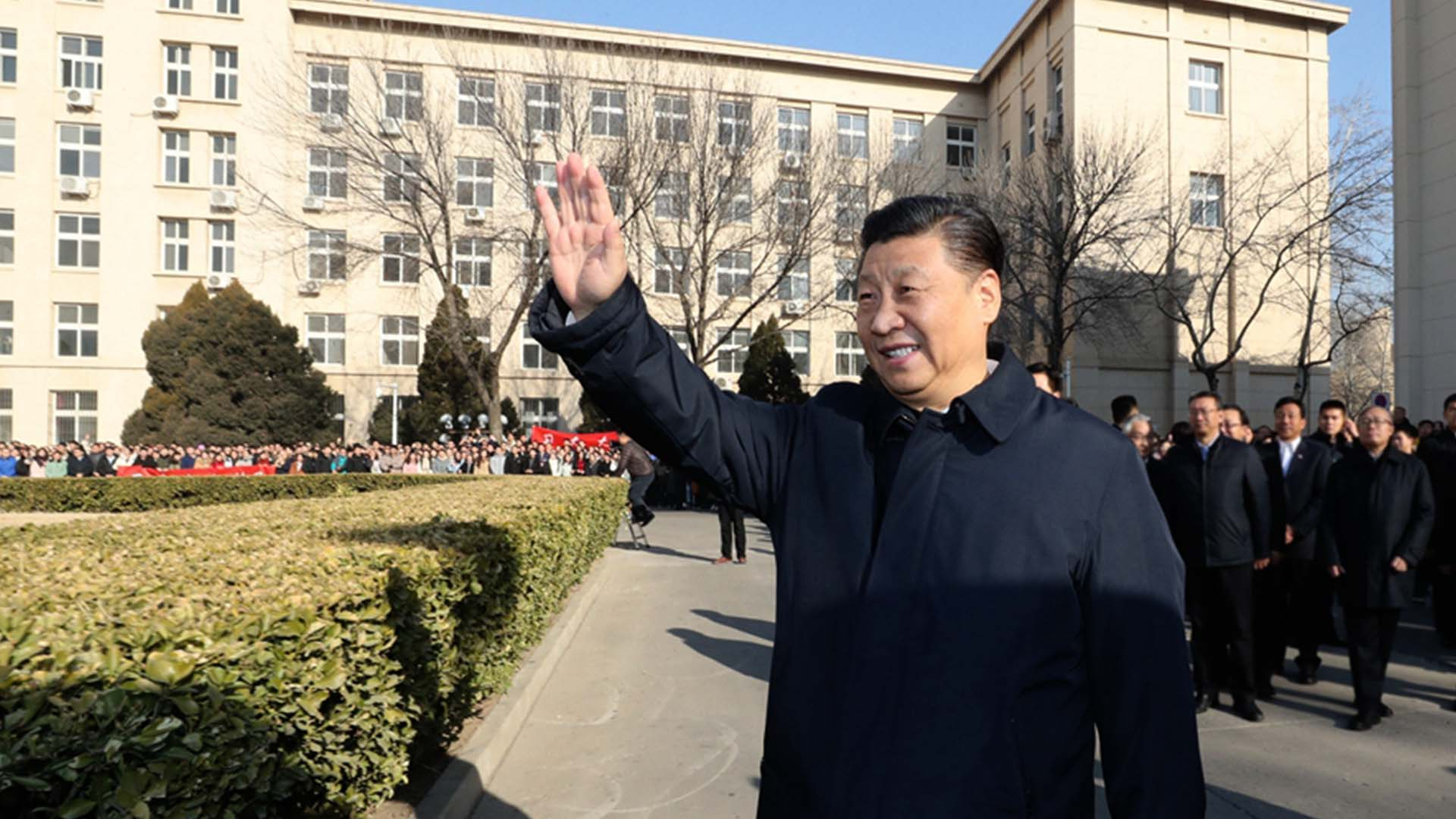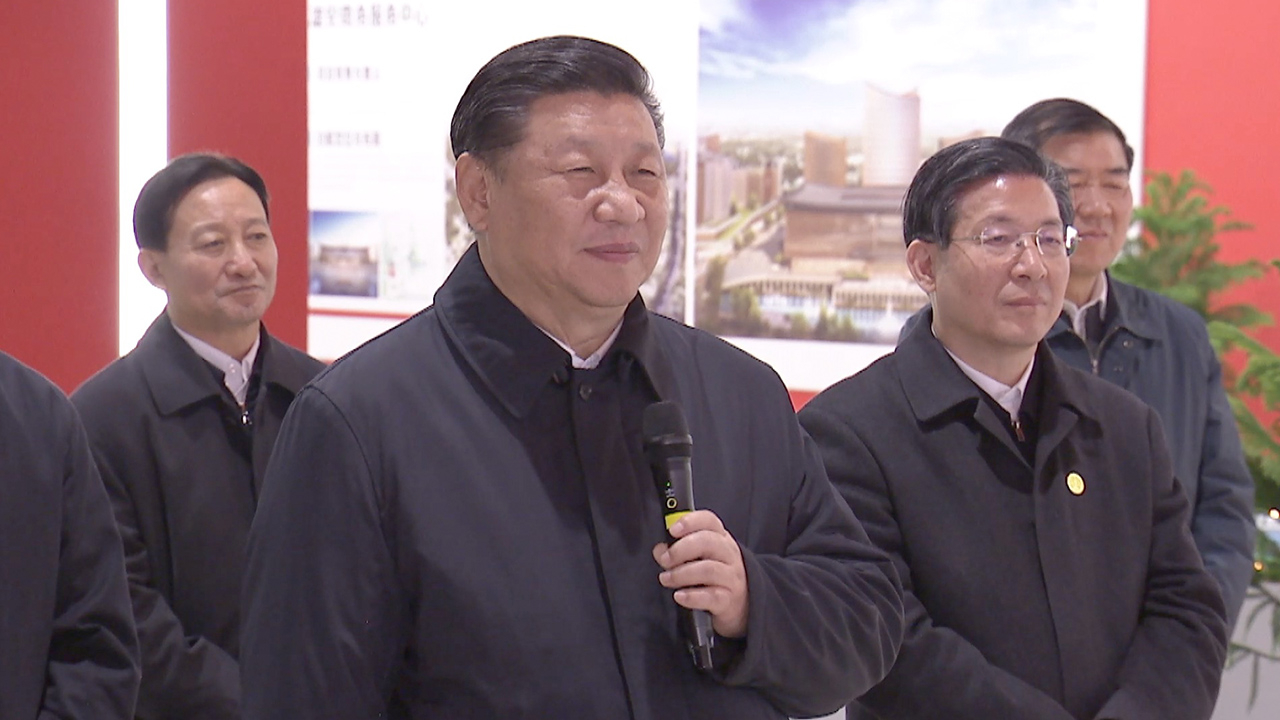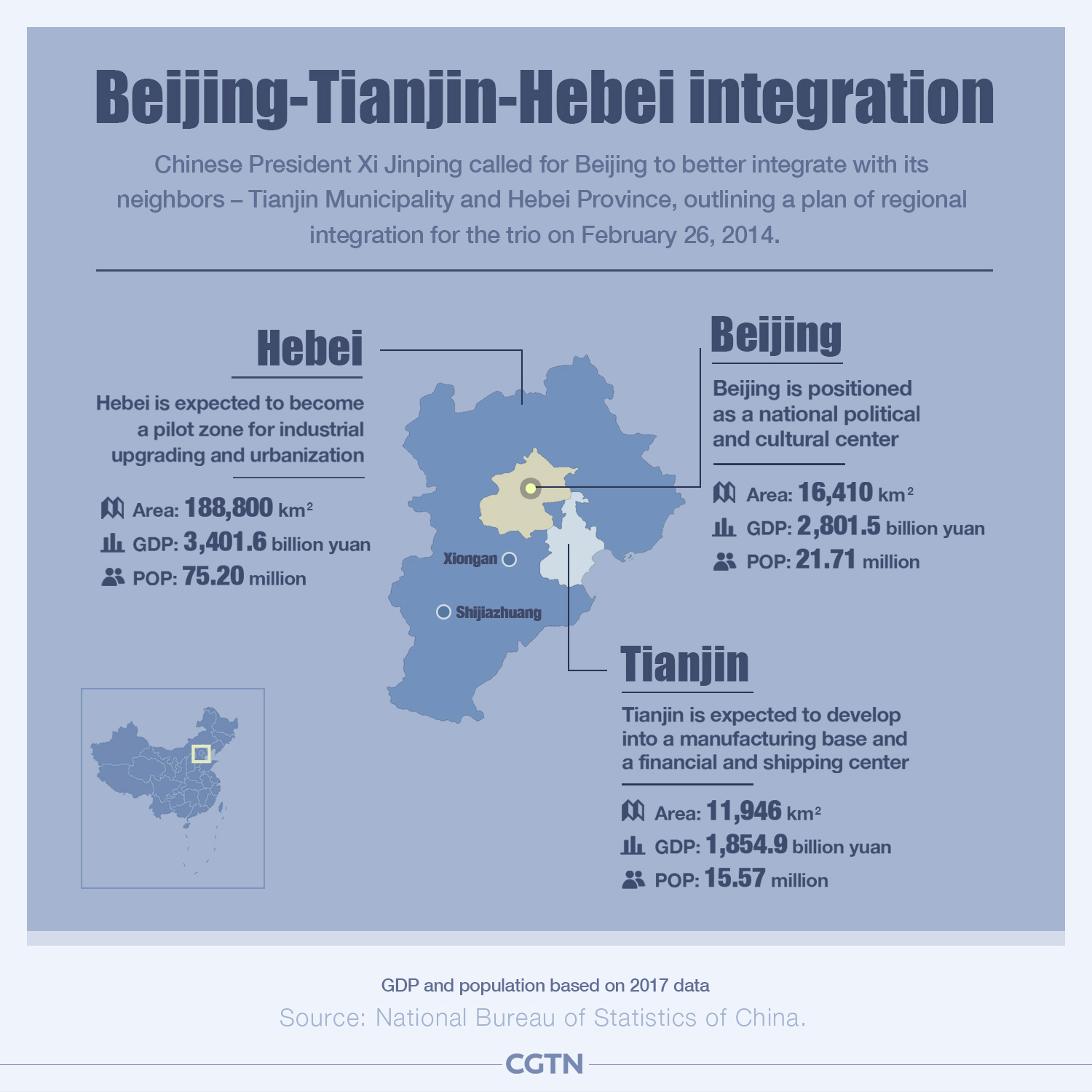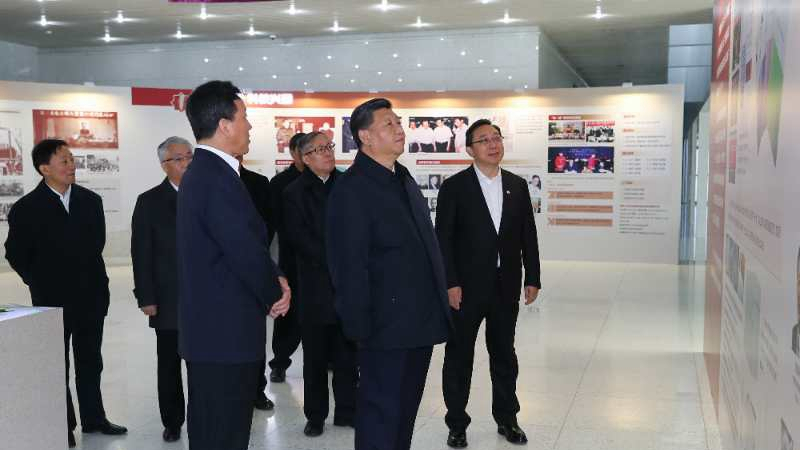
Politics
20:34, 18-Jan-2019
Xi urges greater Beijing-Tianjin-Hebei development coordination
Updated
23:33, 18-Jan-2019
CGTN
00:39

Chinese President Xi Jinping called on Friday for the enhancing of the consciousness, initiative, and creativity of the Beijing-Tianjin-Hebei region so as to achieve greater progress.
"We should understand and implement the work of coordinated development in the Beijing-Tianjin-Hebei region from an overall and a longer-term perspective," he said.
Xi, also general secretary of the Communist Party of China Central Committee and chairman of the Central Military Commission, made the remarks during an inspection tour of the region from Wednesday to Friday.
Efforts in six aspects
The coordinated development of the Beijing-Tianjin-Hebei region is a national strategy put forward by Xi in February 2014, aiming to achieve better integration and more balanced development in the region.
At Friday's symposium, the Chinese president called for efforts in six aspects to advance the strategy.
01:19

Firstly, active efforts should be made to transfer Beijing's non-capital functions in a steady and orderly way, whereas its four key functions as the center of politics, culture, international communication, and technological innovation should be enhanced, he said.
Secondly, Xi stressed the importance of building a high-quality and high-standard Xiongan New Area, where a number of major projects are needed to perform Beijing's non-capital functions. He also urged progress in infrastructure construction in the area.
Thirdly, he said Beijing should upgrade public services in its sub-center in the eastern district of Tongzhou and optimize the city's spatial layout and economic structure. He called on the capital to improve the efficiency in administrative management.
Fourthly, the Beijing-Tianjin-Hebei region should deepen reform and encourage innovation to facilitate high-quality development, Xi said, adding that the flow of human resources, materials, and information in the region should be further integrated.
Fifthly, he called for concerted efforts to protect the ecological environment, urging an increase in clean energy supply.
Sixthly, Xi stressed a people-centered approach to improving basic public services across the region. Moreover, the president asked the local authorities to make job creation a priority.
During his three-day inspection, Xi also met with a group of start-up entrepreneurs at a service center in the Xiongan New Area, as well as visiting Nankai University and Tianjin Port.

Beijing-Tianjin-Hebei integration /CGTN's Gao Hongmei
Beijing-Tianjin-Hebei integration /CGTN's Gao Hongmei
Take "historic opportunities" in building Xiongan
Two years ago, the president said at the meeting on the planning for the Xiongan New Area that building the area is a historic project.
Xi urged entrepreneurs to take "historic opportunities" in the construction of the area during his inspection on Wednesday, the second such visit in two years.
He also encouraged railway builders still working through the winter cold to make greater contributions to the construction of the new area.
Innovation is the driving force
On Thursday, the president went to Nankai University and visited Tianjin Port in north China's Tianjin Municipality.
"Economy is the top priority in developing a country, and to achieve economic progress, building transportation infrastructure comes first," Xi said.
00:47

At the last stop of his inspection in Tianjin, Xi inspected Chinese-made products exhibited in the synergy innovation exhibition center of Zhongguancun in Binhai New District.
He pointed out that innovation is the driving force of high-quality development and China needs self-innovation to keep moving forward.
Inspection of Beijing's sub-administrative center
Xi inspected Beijing's sub-administrative center on Friday morning, the third leg of his inspection tour this week.
He inspected several infrastructures in the city including green centers, theaters, libraries, and museums.
During the inspection, President Xi was also briefed about the construction process of some major projects in the area.
(Top image: Chinese President Xi Jinping inspects Nankai University in Tianjin, January 17, 2019. / Xinhua Photo)

SITEMAP
Copyright © 2018 CGTN. Beijing ICP prepared NO.16065310-3
Copyright © 2018 CGTN. Beijing ICP prepared NO.16065310-3